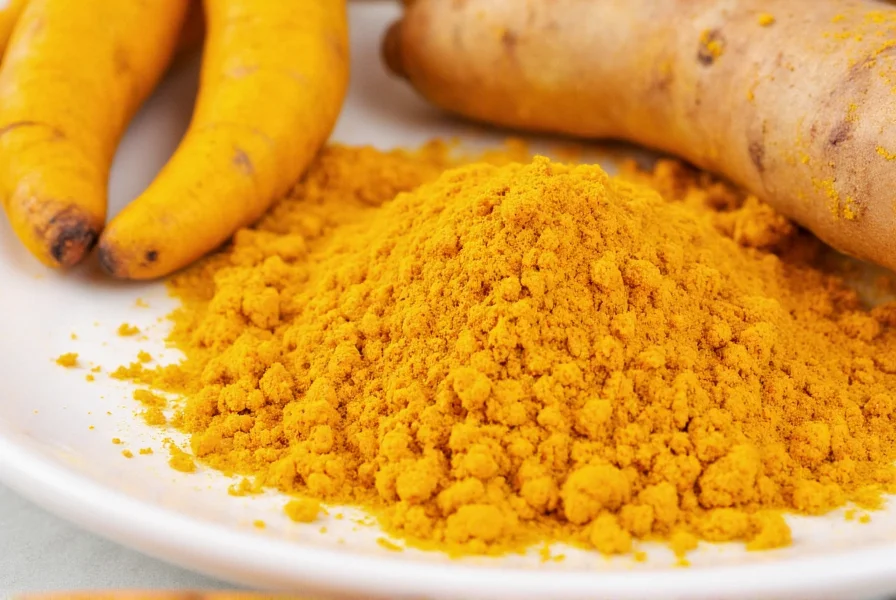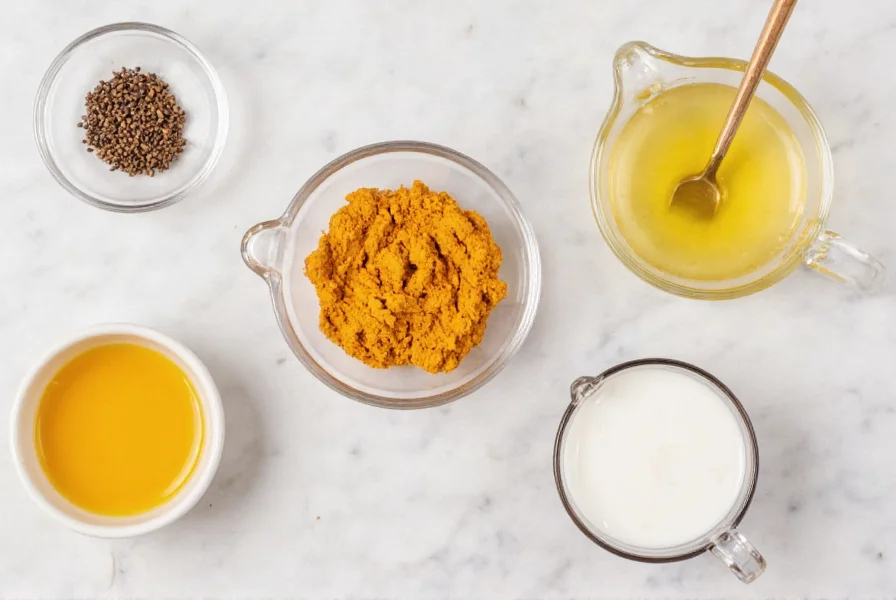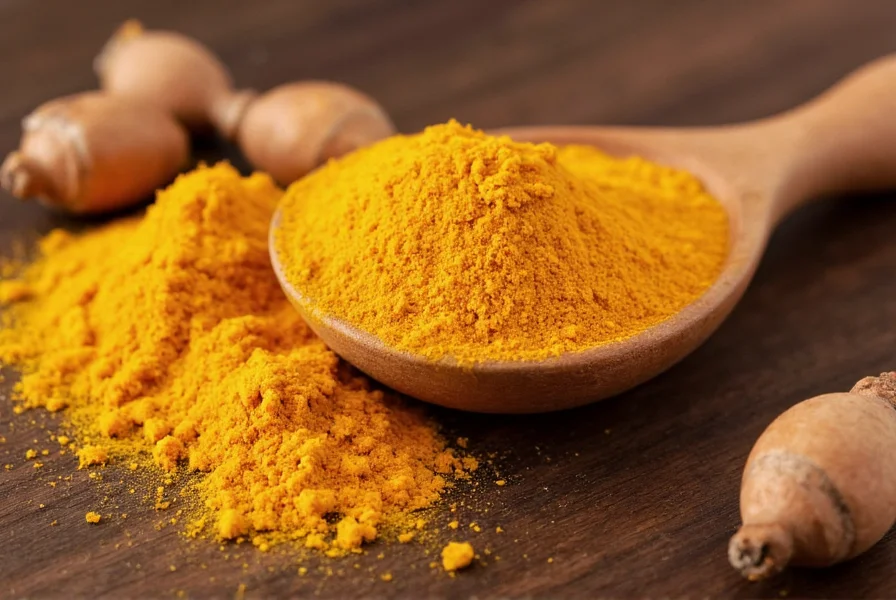For centuries, turmeric haldi has been a cornerstone of traditional Indian and Southeast Asian medicine. This vibrant yellow spice, derived from the Curcuma longa plant's rhizome, has transitioned from ancient Ayurvedic practices to modern scientific scrutiny. Understanding the genuine turmeric haldi benefits requires distinguishing between traditional claims and evidence-based applications.
The Science Behind Turmeric's Power
Curcumin constitutes approximately 2-8% of turmeric by weight and represents its most bioactive component. This polyphenol delivers turmeric's primary health benefits through multiple biological pathways. However, curcumin's poor bioavailability presents a significant challenge—its absorption rate remains low without enhancement strategies.

Proven Turmeric Haldi Benefits Supported by Research
Modern clinical studies have validated several specific health applications of turmeric consumption:
1. Anti-Inflammatory Effects for Joint Health
Chronic inflammation contributes to numerous health conditions, including arthritis. Multiple randomized controlled trials demonstrate that curcumin supplementation (typically 500-1,500 mg daily) significantly reduces osteoarthritis and rheumatoid arthritis symptoms. A 2016 study published in the Journal of Medicinal Food found curcumin as effective as ibuprofen for reducing knee osteoarthritis pain, without the gastrointestinal side effects.
2. Antioxidant Protection Against Cellular Damage
Curcumin neutralizes free radicals while stimulating the body's own antioxidant enzymes. This dual action helps combat oxidative stress, a key factor in aging and chronic diseases. Research indicates turmeric haldi benefits extend to protecting against neurodegenerative conditions by reducing oxidative damage in brain tissue.
3. Cognitive Function and Brain Health
Studies show curcumin increases brain-derived neurotrophic factor (BDNF), a growth hormone that functions in the brain. Declining BDNF levels associate with depression and Alzheimer's disease. Regular turmeric consumption may help delay or reverse brain diseases and age-related cognitive decline.
4. Cardiovascular Protection
Turmeric improves endothelial function—the lining of blood vessels—which regulates blood pressure and clotting. A 2017 review in Advances in Nutrition concluded that curcumin supplementation significantly reduces LDL cholesterol and triglyceride levels while improving overall heart health markers.
| Health Benefit | Recommended Daily Dose | Timeframe for Noticeable Effects | Enhancement Method |
|---|---|---|---|
| Joint Pain Relief | 500-1,500 mg curcumin | 4-8 weeks | With 5-20 mg piperine |
| Antioxidant Support | 250-500 mg curcumin | 2-4 weeks | With healthy fats |
| Cardiovascular Health | 500-1,000 mg curcumin | 6-12 weeks | With black pepper |
Traditional Uses vs. Scientific Evidence
Ayurvedic medicine attributes numerous turmeric haldi benefits beyond current scientific validation. While traditional applications include wound healing, digestive support, and skin conditions, research provides varying levels of support:
- Skin health: Topical turmeric shows promise for psoriasis and wound healing, though more research is needed
- Digestive support: Limited evidence suggests potential benefits for irritable bowel syndrome
- Depression management: Some studies indicate curcumin may complement antidepressant therapy
Maximizing Turmeric Absorption
Understanding how to enhance curcumin bioavailability represents a crucial aspect of realizing turmeric haldi benefits. Pure curcumin has extremely poor absorption. Effective strategies include:
- Combining with black pepper (piperine increases absorption by 2,000%)
- Consuming with healthy fats (curcumin is fat-soluble)
- Using heated preparations (cooking with oil improves solubility)
- Choosing formulations with phospholipids or nanoparticles

Safety Considerations and Potential Side Effects
Turmeric is generally safe when consumed in culinary amounts. However, high-dose supplementation requires caution:
- May interact with blood thinners and diabetes medications
- High doses can cause gastrointestinal discomfort
- Contraindicated for individuals with gallbladder issues
- Pregnant women should avoid medicinal doses
The recommended daily intake for general health ranges from 500-2,000 mg of curcumin. Always consult with a healthcare provider before starting high-dose supplementation, especially if managing chronic health conditions or taking medications.
Incorporating Turmeric Into Your Daily Routine
Practical ways to harness turmeric haldi benefits include:
- Golden milk: Turmeric with warm milk, black pepper, and healthy fats
- Smoothie additions: Blend with pineapple, ginger, and coconut oil
- Culinary uses: Add to curries, soups, and roasted vegetables
- Tea preparations: Steep with ginger and lemon
For therapeutic effects, standardized curcumin supplements providing 95% curcuminoids with absorption enhancers typically deliver more consistent results than culinary use alone.
Frequently Asked Questions
What are the most scientifically proven turmeric haldi benefits?
Research most strongly supports turmeric's anti-inflammatory effects for arthritis management, its antioxidant properties for cellular protection, cardiovascular benefits through improved endothelial function, and potential cognitive support via increased BDNF levels. These applications have the strongest clinical evidence from human studies.
How much turmeric should I take daily for health benefits?
For general health maintenance, 500-1,000 mg of standardized curcumin (providing 95% curcuminoids) daily is sufficient. Therapeutic applications for conditions like arthritis typically require 1,000-1,500 mg daily. Always consume with black pepper or healthy fats to enhance absorption. Culinary use alone rarely provides therapeutic doses.
Can turmeric help with arthritis pain relief?
Yes, multiple clinical trials demonstrate turmeric's effectiveness for reducing arthritis pain. A 2016 study found 1,000 mg of curcumin daily significantly reduced osteoarthritis symptoms, with results comparable to ibuprofen but without the gastrointestinal side effects. Consistent use for 4-8 weeks typically yields noticeable improvement.
What's the best way to absorb turmeric's benefits?
Combine turmeric with black pepper (which contains piperine) to increase absorption by up to 2,000%. Consuming with healthy fats like coconut oil or olive oil also enhances bioavailability since curcumin is fat-soluble. Heating turmeric in oil during cooking improves solubility. For therapeutic effects, consider standardized supplements with absorption technology.
Are there any side effects of consuming turmeric?
Culinary amounts of turmeric are generally safe. High-dose supplementation may cause gastrointestinal issues in some people. Turmeric can interact with blood thinners and diabetes medications, so consult your doctor if taking these. Individuals with gallbladder problems should avoid high doses. Pregnant women should stick to culinary amounts rather than supplements.











 浙公网安备
33010002000092号
浙公网安备
33010002000092号 浙B2-20120091-4
浙B2-20120091-4